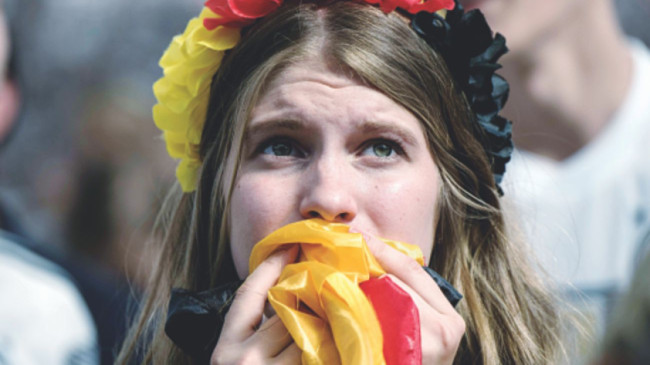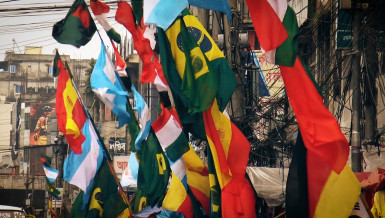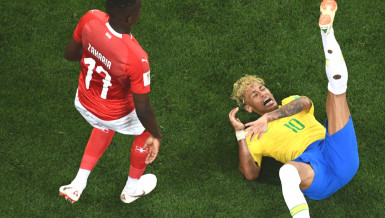Heartbroken and humiliated, Germany will be haunted by South Korea for years.
The world's number one football nation met their biggest disgrace in 80 years when the rank outsiders from Asia dumped them out of the World Cup with a shocking 2-0 victory on Wednesday.
It's the biggest upset in the World Cup as well as in the history of the game.
Football is not cricket, which is often dubbed as the glorious game of uncertainty. Here skills, stamina, strategy and conviction count in every win. And Germany, known for their consistency and methodical approach to the game, are the unlikeliest team to make such headlines.
Die Mannschaft is the name in German for their football team, and the term means to work collectively to achieve a common goal and thus be responsible for each other. The philosophy is manifested in German footballers to almost mechanical precision, making them the most consistent footballers on earth.
That is why French football legend Michel Platini once said: "When the Germans play well they become world champions; if they play poor they reach the final."
So, what has gone wrong with Germany, then? The players, who mesmerised world football for four years, are suddenly out of their element. It is hard for pundits and fans to believe. But the sad reality is that the reigning World Cup champions crashed out of the tournament from the group phase with two defeats and a stoppage time win.
No European nation defending the World Cup has survived the group stages in the last two decades, France failing in 2002, Italy in 2010, Spain in 2014 and now Germany in 2018.
In my view, here lies the main answer to why Joachim Loew's side failed. Like others, Loew too made the same mistake by keeping faith in his trusted and tried old guard to repeat the Brazil feat. Nine of his team members are from the last World Cup winners. To accommodate them, he left out the youngsters who won the Confederations Cup last year, which interestingly was also on Russian soil.
Loew banked on Thomas Mueller, Mario Gomez, Mesut Ozil and Sami Khedira, all of whom seemed to have passed their sell-by dates. Meanwhile, Confederation Cup heroes like Leon Goretzka, Niklas Sule, Julian Brandt and Sebastian Rudy got chances to come off the bench only when Loew's first choices failed or were injured.
Another reason was the hunger factor that went missing among his players. Somehow, Germany lost the edge and looked afraid of attacking. Except for youngsters, they all looked sated and complacent. Striker Mueller, who scored five goals, including a hattrick four years ago, never looked hungry enough to score a goal.
There is also the stagnation in coaching and innovation that pushed Germany downhill. Loew possibly has already given all he could to German football in 12 years at the helm. He could not develop the team further tactically, deploying the same 4-2-3-1 formation and style of play. He failed to read the writing on the wall from defeats to Brazil and Austria and a shaky win over Saudi Arabia in a pre-tournament friendly; and adjust the strategy.
Another lesson for Germany as well as for Western European countries that host the world's most attractive leagues is that globalisation indeed takes hold in football. Knowledge is moving farther and faster through players and technology to reduce the gap in standards across the world.
The run of Germany's golden generation would have come to an end some day and in some way. And the day, it seems to me, when Germany turned over to a new chapter and a new beginning, was June 28.
However, let's take nothing away from South Korea. It was a masterclass that outclassed a team that won four World Cups.
Cheers, Asian warriors!
The writer is former Sports Editor of The Daily Star





 For all latest news, follow The Daily Star's Google News channel.
For all latest news, follow The Daily Star's Google News channel. 










Leave your comments